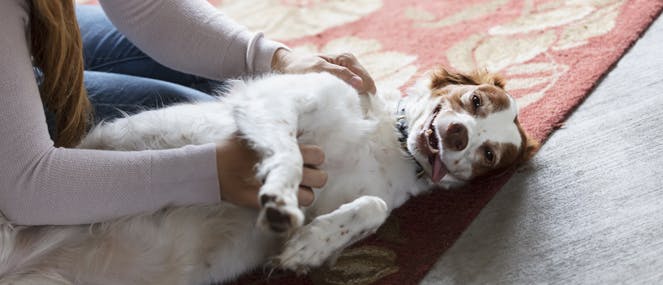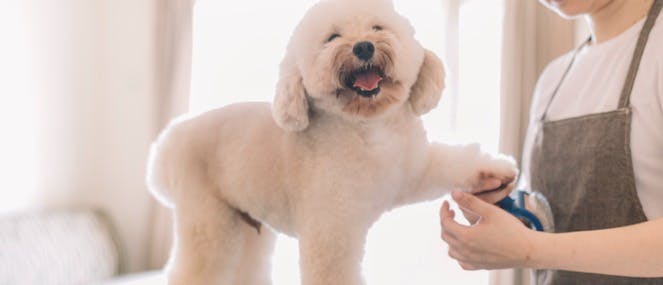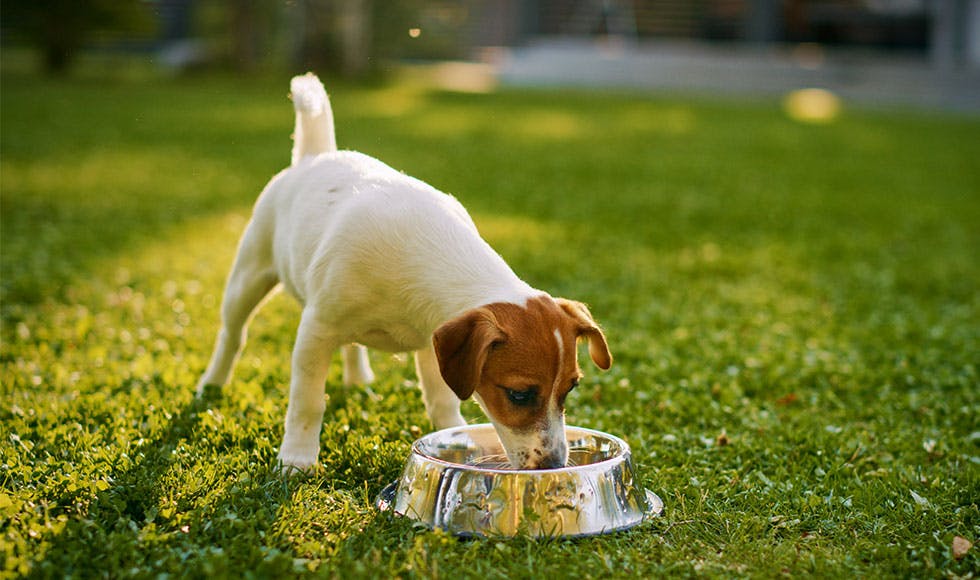
- A Guide To Perfect Your Pet's Health/
- Health and Vitality Products For Your Dog/
- How to Manage Your Pets Holiday Stress


The silly season has arrived, and with it, the festivities and special activities that make us all love this time of year. Unfortunately for our pets, it can be a challenging few months. Routines are no longer routine, and the gift exchanges, get-togethers and parties can take their toll. With the right tools in your toolbox, you can set your pet up for a season of joy so that everyone has a great time.
Causes of Holiday Stress in Pets
Much like people, pets thrive on routine. Knowing when meals will arrive, greeting you as walk in from work and having nightly visits to the park are an important part of your pet’s life. When their usual schedule changes, they can feel confused and stressed at the lack of predictability. Spending more time than usual away from the house is normal, even expected, during the holidays, but cuts into the time you’d usually be able to spend with your pet. Even something as simple as catching up with a friend for coffee or picking up a few extra hours at work can disrupt their routine and leave them feeling a bit lonely.
A Change in Routine
Much like people, pets thrive on routine. Knowing when meals will arrive, greeting you as walk in from work and having nightly visits to the park are an important part of your pet’s life. When their usual schedule changes, they can feel confused and stressed at the lack of predictability. Spending more time than usual away from the house is normal, even expected, during the holidays, but cuts into the time you’d usually be able to spend with your pet. Even something as simple as catching up with a friend for coffee or picking up a few extra hours at work can disrupt their routine and leave them feeling a bit lonely.
Lots of People
Holiday gatherings can be overwhelming for some pets, even ones who are well-socialised and accustomed to visitors. Some breeds are less outgoing overall and more nervous about people, especially ones they don’t know well. With new people come new smells and new sounds. Some visitors may not be fond of pets or may not know how to interact with them appropriately. Don’t expect pets to simply cope, it’s your job as their advocate to make sure they’re calm and comfortable – especially in their own home.
Environmental Differences
The trappings of the season are meant to spark celebration, but the lights, gifts under the tree and decorations can also be a trip hazard or barrier, especially for older or more frail pets. If you’re travelling with your pet, an unfamiliar setting may cause them stress. The sounds like poppers and fireworks – even champagne corks, can be scary to pets also.
How to Detect Holiday Stress in Pets
Hiding, not making eye contact
Cowering and fearful, they may not want to leave their hiding place even to eat.
Panting
Dogs, especially, pant when nervous or stressed.
Potty ‘accidents’ inside
Cats may feel uncomfortable using the litter box, and dogs may have ‘accidents’ even when fully housetrained.
Loose stool, vomiting or flatulence
Stress can disrupt pets’ gut health and the fine balance of good bacteria that keeps tummies functioning well.
Pacing and trembling
When dogs are nervous, they can’t settle or relax and may manifest this behaviour by pacing back and forth.
Excessive barking
Rather from excitement or fear, excessive barking is a sign of stress and can be a precursor to aggression.
Resource guarding
Think guarding possessions like a food bowl, toy or space on the sofa. Dogs may growl and show their teeth as a warning.
Licking or yawning
Nervous and repetitive yawning and licking are indicators of stress and discomfort.
Fear-based aggression
The root of most aggressive behaviour is fear and discomfort. Typically, there will be warning signs.
Separation anxiety
When your pet shows significant worry over being left alone, which can result in damage to property or even to themselves.
Managing & preventing holiday stress in your pet
PAW Complete Calm is a tasty fish and chickpea chew that contains Tryptophan and brings on a soothing and comforting effect. Tryptophan is a natural amino acid found in foods such as fish (1). Tryptophan is needed by the body to make serotonin, our happy hormone. More tryptophan means more happy hormone which means a happier and less anxious pet. Help aid your pets in managing their stress by starting the supplements early, as tryptophan takes 4 weeks to build up in the system. Using this early can promote calmness and get them ready for the commotion of the holidays, so starting them on it ahead of time is key. Tryptophan is needed by the body to make serotonin, our happy hormone. More tryptophan means more happy hormone which means a happier and less anxious pet.
Give your pet their own private retreat
Set up an oasis of calm for your pet away from the hustle and bustle of visitors. This is a positive experience, not a punishment, so provide toys and treats and comfy soft bedding. Quiet music is great background noise.
Lots of exercise
Exercise can be a great stress reducer in dogs as well as a bonding time with their humans. It can also help reduce tension and promote calmness and better sleep (2).
Advocate for your dog: house rules for your guests
When inviting visitors over, ensure they understand the appropriate way to interact with your pets. Some pets may not like being picked up, loud voices or having their tail touched. Children, especially, should be coached and supervised around pets to safeguard the child and the pet.
Learn more about how to keep your pet healthy and vital here.
References




